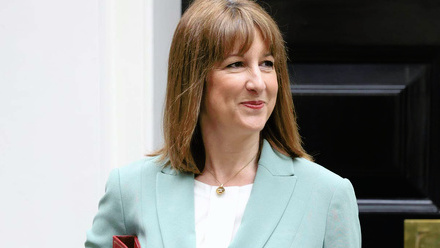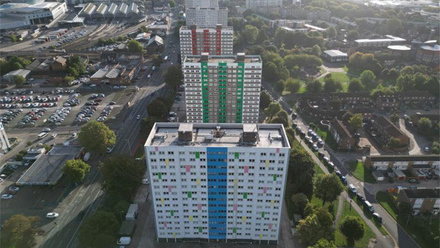The Scottish Programme for Government - What does it mean for Architectural Technology?
Last week, the Scottish Government published its Programme for Government 2024-25. This outlines the administration's plans for the next year, across four priorities of 1) eradicating child poverty, 2) growing the economy, 3) tackling the climate emergency and 4) ensuring high quality and sustainable public services.
The Programme for Government follows a period of turbulence in Scotland, with former First Minister Humza Yousaf stepping aside after a little over a year in post. His successor, John Swinney, will be looking to project stability and competence through the Programme.
The built environment is a key theme throughout much of the Programme. Housing is identified as an enabler of priority 1’s efforts to reduce child poverty (and tackle inequality more broadly). Stand out commitments include:
- Investing £600 million in delivering affordable homes (down from £752 million in 2023-24).
- Investing £100 million to attract an additional £400 million institutional investment, to deliver 2,800 mid-market rent homes.
- Working with local authorities to accelerate development of strategic sites and reforming planning to provide a pipeline of land for new homes.
- Having passed the Housing (Cladding Remediation) (Scotland) Act, accelerating progress on the removal of unsafe cladding.
- Subject to the devolution of power, legislating for a Scottish Building Safety Levy.
- Strengthening tenants' rights and enabling long-term rent controls.
Additional relevant commitments fall under the economic growth priority, including:
- Attracting investment in priority areas such as net zero, housing, and infrastructure through cross-government alignment with the recommendations of the First Minister's Investor Panel.
- Delivering a "New Deal for Business", to improve working between business and government, including providing more certainty, phasing, and effective implementation of regulations.
- Launching a planning apprenticeships programme.
Finally, under the climate emergency priority, government commits to:
- Bringing forward a "Heat in Buildings Bill" to enable government to ban certain types of heating systems (such as gas central heating) and set minimum standards of energy efficiency. The Scottish Government is also currently consulting on regulations to introduce a Scottish equivalent to the Passivhaus standard.
- Establishing legally binding carbon targets.
What does this mean for Architectural Technology professionals?
The obvious conclusion to draw from this Programme for Government is that John Swinney's administration would like to deliver a significant amount of work to the design professions in the built environment, providing for a sustained increase in the number of both social and mid-market houses, built in Scotland. Similarly, cladding remediation and, in the longer term, retrofit programmes may provide additional workstreams. What is less clear is how much of this work will be delivered through a smaller number of large volume projects, and consequently which practitioners will be best placed to take on the projects.
Scotland already has several programmes in place to support domestic efficiency upgrades, such as insulation and heat pump insulation, which may provide additional workstreams to a wide range of designer professionals, and the Heat in Buildings Bill has the potential to catalyse more of this work. The launch of a planning apprenticeship indicates an awareness of the need to expand the built environment workforce, though we would like to see this go beyond planning to design professions.
Ultimately, there is much in this Programme for Government which aligns with CIAT's recently published Recommendations for Government (targeted to the UK Government), and with commitments made by the Labour Party in Westminster. CIAT hopes this will allow for a degree of collaborative working and best practice sharing to improve outcomes across the UK. Delivering tangible improvements, such as removing unsafe cladding and delivering more houses (as well as in areas such as health and education), is likely to be an essential pre-condition for the survival of John Swinney's administration at the next Scottish Parliament elections in 2026, so this Programme will no doubt be closely monitored. CIAT's Policy & External Affairs will be engaging closely with this Programme for Government, to deliver the best outcomes possible for CIAT's Scottish membership.
If you have specific feedback or questions regarding the Programme for Government, please contact [email protected].






